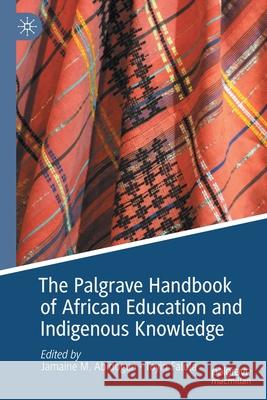The Palgrave Handbook of African Education and Indigenous Knowledge » książka
topmenu
The Palgrave Handbook of African Education and Indigenous Knowledge
ISBN-13: 9783030382797 / Angielski / Miękka / 2021 / 808 str.
The Palgrave Handbook of African Education and Indigenous Knowledge
ISBN-13: 9783030382797 / Angielski / Miękka / 2021 / 808 str.
cena 1127,15
(netto: 1073,48 VAT: 5%)
Najniższa cena z 30 dni: 1079,53
(netto: 1073,48 VAT: 5%)
Najniższa cena z 30 dni: 1079,53
Termin realizacji zamówienia:
ok. 22 dni roboczych.
ok. 22 dni roboczych.
Darmowa dostawa!
Kategorie:
Kategorie BISAC:
Wydawca:
Palgrave MacMillan
Język:
Angielski
ISBN-13:
9783030382797
Rok wydania:
2021
Wydanie:
2020
Ilość stron:
808
Waga:
1.16 kg
Wymiary:
23.39 x 15.6 x 4.29
Oprawa:
Miękka
Wolumenów:
01
Dodatkowe informacje:
Wydanie ilustrowane











